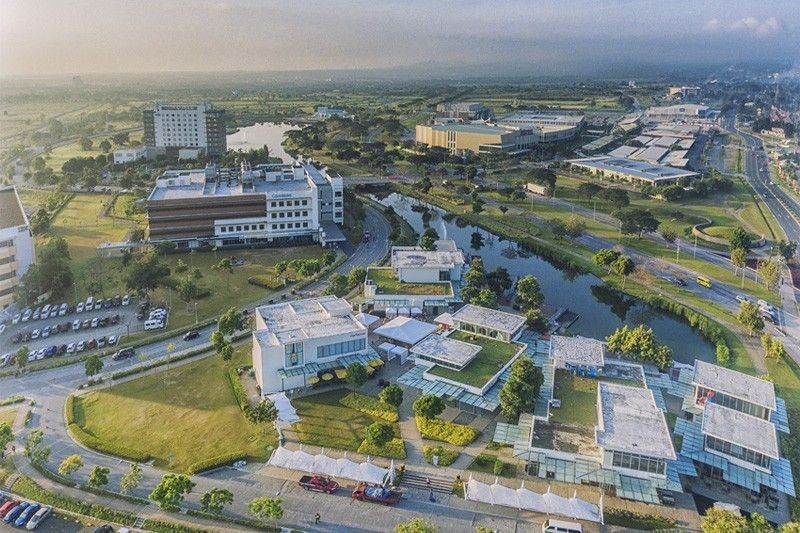
Upgrade to High-Speed Internet for only ₱1499/month!
Enjoy up to 100 Mbps fiber broadband, perfect for browsing, streaming, and gaming.
Visit Suniway.ph to learn
In a world where headlines mislead, opinions masquerade as facts, and AI writes term papers (and possibly love letters!), truth has never been more critical—or more complicated.
To open, let’s borrow some humor from the world of engineers, those practical people who describe chaos with a straight face.
Here’s what engineers say vs. what they mean. (What they mean is in parenthesis)
• Several approaches are being explored. (We are still grasping at straws).
• We’re working on a fresh approach to the problem. (We just hired three kids fresh out of college).
• Close project coordination. (We know who to blame).
• Customer satisfaction upon delivery is assured. (We are so far behind schedule the customer is happy to get it delivered).
• Preliminary operational tests were inconclusive. (The darn thing blew up when we threw the switch.).
• Test results were extremely gratifying. (We are so surprised that the stupid thing works).
• The entire concept will have to be abandoned. (The only person who understood the thing quit).
• We’ll look into it. (Forget it! We have enough problems for now).
• Please read and initial. (Let’s spread the responsibility for the mistake).
• Give us the benefit of your thoughts. (We’ll listen to what you have to say as long as it doesn’t interfere with what we’ve already done).
• Please share your interpretation. (I look forward to hearing this)!
• All new! (Parts not interchangeable with the previous design).
• Years of development (One finally worked).
• Energy saving (Achieved when the power switch is off).
• Low maintenance (Impossible to fix if broken)
Funny? Yes, but this reveals a more profound truth: Even in technical fields, language can obscure more than it reveals. And if that’s true for engineers, what more in our everyday decision-making?
We long for certainty. But life rarely hands it to us neatly. Decisions must often be made amid fog and friction. So, how do we pursue truth in a world like this?
Based on Adam Kucharski’s book “Proof: The Art and Science of Certainty,” here are five practical lessons that help us become wiser truth-seekers:
1. It’s dangerous to assume something is self-evident.
What feels “obvious” is not always true. Even historically accepted ideas have fallen apart under scrutiny. In both mathematics and society, many “givens” were later proven wrong.
What we should do: Question our assumptions. Just because something feels true doesn’t make it so. Ask: “Is this true or simply familiar?”
2. Finding truth means balancing belief and skepticism.
Too much belief, and you risk falling for lies. Too much skepticism and you dismiss the truth when it’s right in front of you. Finding balance is where wisdom lives.
Be open to changing your mind. Test your beliefs. Let your curiosity challenge your certainty.
3. Life is full of “weak evidence” problems.
You’ll rarely have all the facts. Waiting for perfect clarity might mean missing critical action. Yet rushing with flimsy facts invites error.
Don’t chase perfection. Pursue reason. Evaluate carefully, consult wisely, and make the best decision you can with the knowledge you have.
4. Prediction is not the same as understanding.
Just because something usually happens doesn’t explain why it happens. Data can point, but only discernment connects the dots.
Go deeper. Ask not just “What’s likely?” but “Why is this happening — and what does it mean?”
5. Technology is changing our definition of proof.
AI can solve problems we can’t, but often without showing us how to do so. That forces us to trust the process even when we don’t fully understand it.
Let technology help, not replace, your thinking. Use AI as a partner in discovery, but never surrender your judgment.
We live in an era overflowing with information, data, and rapid knowledge-sharing — yet starving for wisdom. In a world where everyone has something to say, few truly say anything of substance. The challenge today is not just to hear, but to discern. To dive beneath the noise, filter the spin, and dig for what is genuinely true.
Take, for example, a typical exchange between a reporter and a politician:
Reporter: “Sir, what can you say about the issue?”
Politician: “Well, let me begin by saying… that I certainly have something to say… but I’ll say it at the appropriate time — if saying it will help clarify what I’ve already said… previously.”
Translation: Still didn’t say anything.
In a world full of talkers, discern the difference between noise and wisdom. Not every answer that sounds smart says anything at all.
Cultivate the habit of probing deeper. Sharpen your critical thinking. Embrace sustained inquiry. The wisest voices aren’t the loudest — they’re the ones who ask the right questions.
Value truth. And learn the discipline of seeking it.
Catch Kongversations with Francis on YouTube and all major podcast platforms — Spotify, Apple, Google, and more. Plus, listen to Inspiring Excellence wherever you stream.
https://www.cybersalt.org/article-archive?limit=30&month=04&year=2021&start=0

 8 hours ago
1
8 hours ago
1



